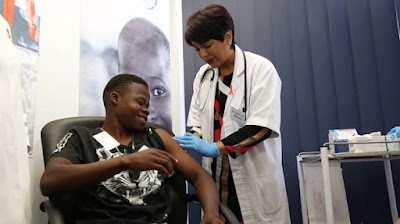South Africa is set to manufacture an affordable version of a revolutionary HIV-prevention drug, providing a crucial opportunity for millions of people in Africa to access effective protection against the virus.
According to reporting by The Guardian, Cipla, an Indian pharmaceutical company, has confirmed that it will produce a generic version of the injectable long-acting cabotegravir (CAB-LA) prophylaxis at its plants in Benoni or Durban.
Cabotegravir works by blocking HIV from entering human cells, drastically reducing the risk of infection through sexual activity. Compared to the daily HIV-prevention pill that is currently available for free in South Africa and other African countries, CAB-LA has proven to be more effective and easier to adhere to.
The brand-name version of CAB-LA is priced at around $3,500 for a single injection in the United States, rendering it unaffordable for lower-income countries. Even at a reduced "not-for-profit" price intended for 90 poorer nations, including South Africa, it remains prohibitively expensive for the government to purchase. Calls to lower the price of the drug have been made by prominent figures in healthcare and celebrities, including Winnie Byanyima, the executive director of UNAids.
However, the road to producing a generic version of the drug is complex due to the intricate manufacturing process involved. Kimberly Smith, ViiV's head of research, explained that sharing the technology behind the production is necessary for pharmaceutical companies to create generics. As a result, it could take up to five years before the affordable version becomes available on
Access to locally produced medicines remains a challenge in Africa, with less than 40% of the required medications being manufactured on the continent. McKinsey analysis indicates that importing ready-made medicines can be costly, while local production using imported raw materials is more economical. Intellectual property agreements like the one facilitated by the MPP can mitigate medicine shortages by providing alternative suppliers. Such agreements are particularly crucial for low-income countries, as demonstrated during the COVID-19 pandemic when Western nations secured the majority of vaccine supplies.


Post a Comment
Abusive or Prohibited content won't be published.